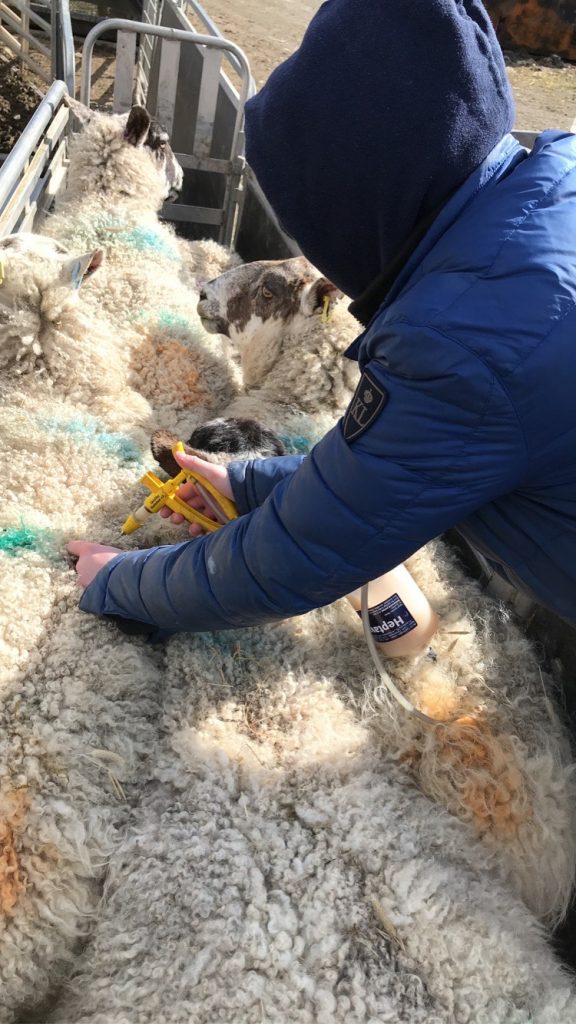A new collaborative project between NFUS, Quality Meat Scotland (QMS) and Borders College will help futureproof beef and sheep farms by highlighting benefits of work-based learning to young people, career influencers and to farm employers.
Beef and Sheep Farming Careers project will follow a range of students, all with their own story and pathway, who are at different stages within their agriculture career journeys. The project will highlight different routes towards an apprenticeship whether direct from school, college, as a career changer or through a pre-apprenticeship. These routes can all lead to a modern apprenticeship and indeed further and higher education.
Borders College continue to run a range of agricultural apprenticeship courses which cover all sectors of the industry. Those undergoing their apprenticeship on beef and sheep farms can now get recognition of specialisation in Sheep and Cattle Farming to be certified by Borders College. In addition to the knowledge and skills required in animal welfare, productivity, mechanisation, and grassland management the apprentices will have the opportunity to complete valuable and highly relevant student induction units in biodiversity and climate change.
The project will help raise awareness of what is involved for both the learner and the employer and showcase the many benefits work-based learning can bring. This will help ensure there is a pipeline of future employees coming through who have the relevant skills and knowledge required to farm in a dynamic, developing industry.
This project will address many of the recommendations raised in the NFUS ‘Education and Skills in Farming and Crofting Report’, which was derived from a series of focus groups within the industry, and to raise the profile of food and farming and to train the trainers and support farmers as employers and mentors. Planned activity includes a series of case studies showcasing personal experiences from both apprentices, work placement students and employers, shareable infographics, links to resources to support employers and a social media takeover.
“The focus groups highlighted a number of perceived barriers to employers in hiring an apprentice and we want to address some of these barriers and showcase the many benefits an apprentice can bring to a business and to employers,” said George Jamieson, Skills Policy Manager at NFUS.
“Borders College are one of the many high quality organisations delivering apprenticeships in Scotland and we are excited to work with them to highlight how they are including sustainability, biodiversity, technology as well as traditional agricultural skills into their programme. We look to work closely with the wider college sector and potentially schools on information and collaboration.”
Mary Thomson, Curriculum and Learning Manager at Borders College said: “We are delighted to have the opportunity to work with QMS and NFUS to highlight some of the excellent work-based learning opportunities available within the sector and hope that this will encourage more learners to consider a career in agriculture. We also look forward to hearing from Borders Region employers interested in providing a work-based learning opportunity to a student.”
One of the apprentices who will be sharing their story is Rhianna who is currently undertaking a Modern Apprenticeship on Pilmuir Farm, a mainly livestock farm, on the outskirts of Hawick. Matthews Thomson from Pilmuir Farm who originally took Rhianna on as a work placement student and has encouraged her to move onto her Modern Apprenticeship said: “As a young person myself running a farming business I know opportunities are hard to come by and it’s been great to be able to give another young person an opportunity to learn about the industry in a positive manner.”
NFUS ‘Education and Skills in Farming and Crofting Report is available at: https://www.nfus.org.uk/userfiles/documents/NFUS%20Briefing%20-%20Education%20and%20Skills%20Report.pdf





